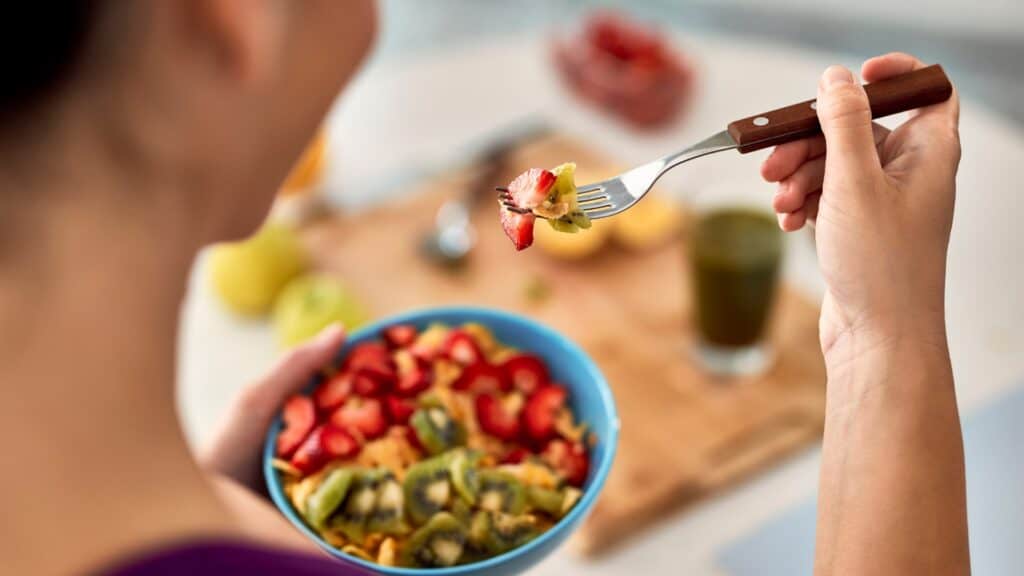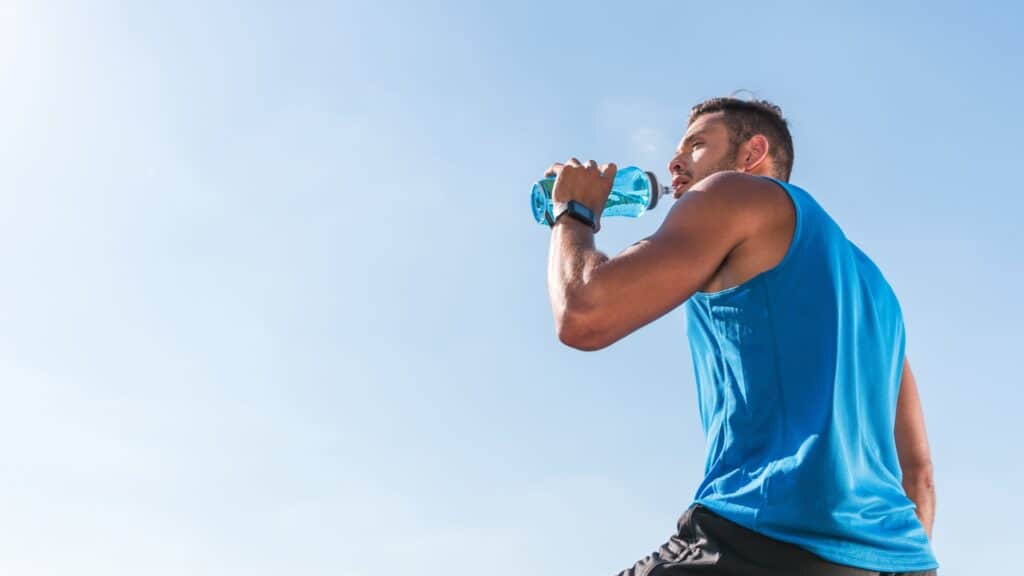Navigating the intricate relationship between running and nutrition is essential for any endurance athlete.
Despite adequate preparation and training, the transition from training runs to race day can present unique hurdles in fueling the body effectively.

Understanding the Challenge: Eating Struggles in Races
Many runners find themselves grappling with eating during marathons, particularly after covering significant distances, often around the 20-kilometer mark.
While training runs at lower intensities may seem more manageable, race day introduces variables that disrupt the usual strategy.
This discrepancy often stems from the body’s shift in focus during races, prioritizing blood flow to working muscles over the digestive system, making it challenging to absorb nutrients efficiently.
Expert Advice: Strategies to Overcome Eating Challenges
One effective approach is to start fueling earlier in the race, consuming small amounts at regular intervals.
By front-loading fuel intake, runners can optimize energy reserves for the latter stages of the race, mitigating potential depletion.
Experimentation with different types of fuel is also crucial, as individual preferences and tolerances vary. Avoiding overly sweet or solid substances, such as gels and high-sugar drinks, can alleviate discomfort and enhance absorption.
Tailoring Nutrition to Individual Needs
For runners prone to nausea or difficulty with sweet substances, exploring alternatives like bananas, potatoes, or slow-release energy sources is recommended.
The choice between solids and gels depends on personal preferences and digestive tolerance. Incorporating water with solid fuel intake can aid digestion and hydration, ensuring optimal nutrient absorption. Regular experimentation during training runs and races allows runners to identify the most effective nutrition strategies for their unique physiology.
In the pursuit of peak performance, mastering running nutrition is paramount.
By understanding the challenges of eating during marathons and implementing targeted strategies, runners can optimize fuel intake and sustain energy levels throughout the race.

Optimizing Pre-Race Nutrition for Marathon Success
Pre-race nutrition is a critical aspect of marathon preparation.
With race day looming, runners often seek guidance on how to fine-tune their nutrition in the lead-up to the event. The advice advocates for consistency, advising runners to stick to their regular dietary routine in the week preceding the race. While travelling and dining out pose challenges, opting for familiar foods can help maintain nutritional continuity.
Mastering Pre-Race Breakfast
The morning of the race demands careful attention to pre-race breakfast rituals. The importance of adhering to familiar pre-race snacks is emphasized, steering clear of any new dietary experiments. Whether it’s a banana, meal replacement shake, or oats, runners should rely on tried-and-tested options to fuel their race-day performance effectively.
Maintain dietary consistency in the week leading up to the race.
Opt for familiar foods to minimize digestive discomfort and ensure optimal fueling. Prioritize pre-race breakfast options that align with your regular routine and preferences. Avoid introducing new foods or dietary practices on race day to mitigate the risk of digestive issues or energy fluctuations.

Optimizing Nutrition for Long Runs
Carbohydrate Intake: For long-distance running, aiming for approximately 60 grams of carbohydrates per hour is a reasonable guideline. This provides the necessary fuel to sustain energy levels throughout the run.
Adaptation to Race Strategy: The fueling strategy should be adapted based on individual race strategies and preferences. While there’s no fixed rule regarding calories per kilometer, focusing on carbohydrate intake per hour ensures a consistent energy supply during the run.
Utilizing Energy Drinks: Energy drinks serve as a convenient source of carbohydrates during long runs, facilitating efficient energy replenishment. Incorporating these beverages into the fueling plan can help meet carbohydrate targets effectively.
Consideration for Ultra Distances: In ultra-marathons or longer races such as the Comrades Marathon, sustaining energy levels becomes increasingly challenging.
Alongside energy drinks, incorporating small amounts of solids like Bovril sandwiches provides a more complex source of carbohydrates and essential nutrients.
Practical Implementation: Break down solid food intake into manageable portions, such as one quarter of a sandwich every 2 hours, to avoid digestive discomfort and ensure consistent fueling.
While there are no rigid rules for fueling during long runs, aiming for 60 grams of carbohydrates per hour serves as a practical guideline for sustaining energy levels.
By tailoring the fueling strategy to individual needs and race conditions, runners can optimize their performance and endurance, ensuring a successful and fulfilling running experience.
Related: Low Carb Running Nutrition: How To Fuel Before & During Your Long Runs



Comments are closed.